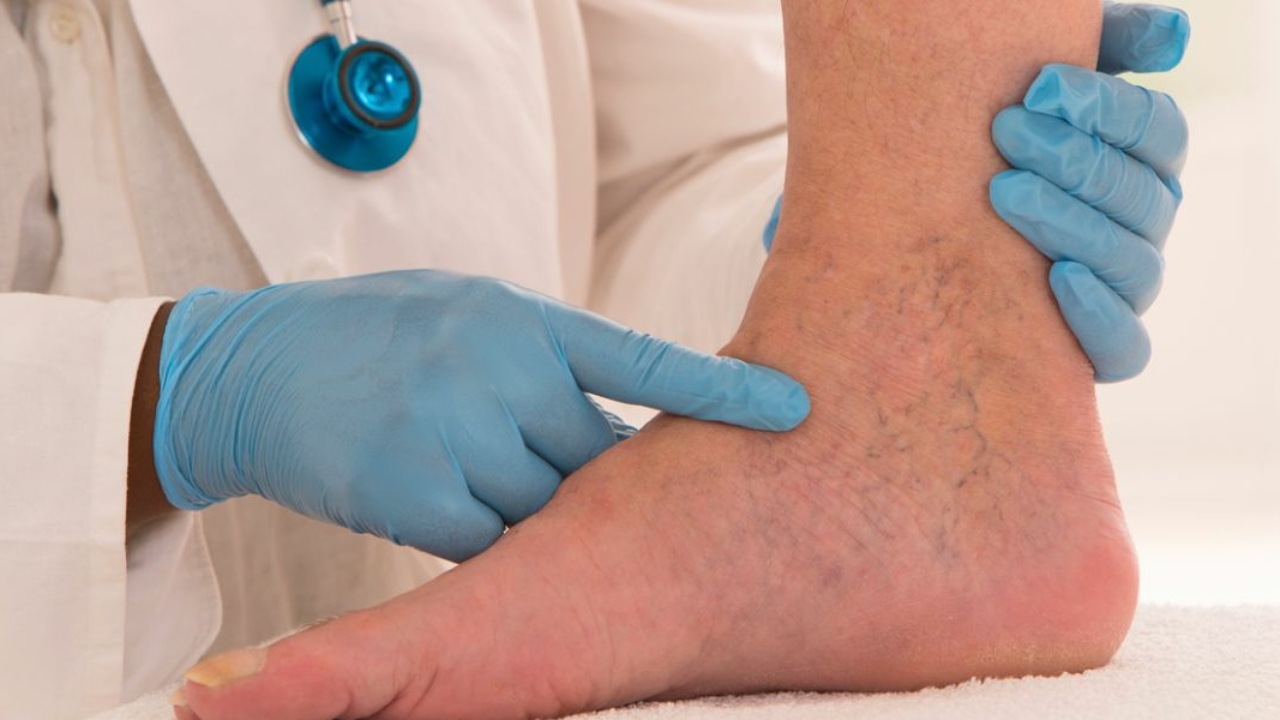Varicose veins are a common vascular condition that affects millions of people worldwide. These swollen, twisted veins not only cause discomfort but also impact the overall quality of life for those who suffer from them. Fortunately, advancements in medical science have led to various treatment options for varicose veins, offering relief and improvement in both health and appearance. In this comprehensive guide, we will delve into the benefits of varicose vein treatments while addressing the critical question: “Are varicose vein treatments covered by insurance?” Furthermore, we will explore the healthcare professionals who specialize in treating varicose veins.
Understanding Varicose Veins
Before delving into the benefits of varicose vein treatments, it’s essential to have a basic understanding of what doctor treats varicose veins. Varicose veins are enlarged, twisted veins that typically appear in the legs and feet. They occur when the one-way valves in the veins, responsible for ensuring blood flows towards the heart, become weakened or damaged. This causes blood to pool in the veins, leading to their characteristic bulging and twisting appearance.
Common Symptoms Of Varicose Veins
Varicose veins can cause a range of uncomfortable symptoms, including:
Pain and Aching: Many individuals with varicose veins experience pain and aching in the affected area, especially after prolonged periods of standing or sitting.
Swelling: Swelling in the legs and ankles is a common symptom of varicose veins.
Itching and Discomfort: Itchy skin and a feeling of heaviness or discomfort in the legs are often reported.
Visible Veins: The most apparent sign of varicose veins is the visible, bulging veins that appear just beneath the skin’s surface.
Skin Changes: In severe cases, varicose veins can lead to skin changes, including darkening or inflammation around the affected area.
Now, let’s explore the benefits of varicose vein treatments.
Benefits Of Varicose Vein Treatments
Pain Relief: One of the most significant benefits of varicose vein treatments is pain relief. Many individuals with varicose veins experience persistent discomfort, which can negatively impact their daily lives. Treatment options such as minimally invasive procedures can effectively alleviate this pain by improving blood circulation and reducing pressure on the affected veins.
Improved Quality of Life: Varicose veins can limit a person’s ability to engage in physical activities. By undergoing treatment, individuals can regain their mobility and enjoy a better quality of life. They can participate in activities they may have previously avoided due to discomfort or pain.
Enhanced Appearance: Varicose veins can be unsightly and may cause self-esteem issues for some individuals. Varicose vein treatments can improve the appearance of the legs, boosting self-confidence and body image.
Prevention of Complications: Left untreated, varicose veins can lead to more severe complications such as venous ulcers, blood clots, or deep vein thrombosis. Treating varicose veins early can help prevent these potentially life-threatening conditions.
Short Recovery Time: Many modern varicose vein treatments are minimally invasive and have shorter recovery times compared to traditional surgical procedures. This means that patients can return to their normal activities relatively quickly.
Are Varicose Vein Treatments Covered By Insurance?
The question of whether varicose vein treatments are covered by insurance is a common concern for individuals seeking relief from this condition. The answer largely depends on several factors, including the severity of the condition, the type of insurance plan, and the specific treatment chosen.
Severity of the Condition: Insurance providers often assess the medical necessity of varicose vein treatments. If your varicose veins are causing significant pain, discomfort, or complications, your chances of insurance coverage may be higher. Severe cases with documented symptoms that impact your daily life are more likely to be approved for coverage.
Type of Insurance Plan: The type of insurance plan you have plays a crucial role in determining coverage. Some insurance plans may consider varicose vein treatments as elective procedures and may not cover them. However, others may cover the treatments, particularly if they are deemed medically necessary.
Prior Authorization: In some cases, insurance providers may require prior authorization before approving varicose vein treatments. This involves your healthcare provider submitting detailed documentation about your condition, symptoms, and the recommended treatment plan to justify the medical necessity.
Specific Treatment Options: The type of varicose vein treatment chosen can also impact insurance coverage. Minimally invasive treatments like endovenous laser treatment (EVLT) or radiofrequency ablation (RFA) are more likely to be covered than cosmetic procedures like sclerotherapy.
Deductibles and Co-payments: Even if your insurance covers varicose vein treatments, you may still be responsible for deductibles, co-payments, or co-insurance. It’s essential to understand your insurance plan’s terms and conditions to determine your financial obligations.
To determine whether your varicose vein treatment is covered by insurance, it’s crucial to:
Contact Your Insurance Provider: Reach out to your insurance company and inquire about the specific coverage details for varicose vein treatments. Ask for a copy of your policy to understand the terms and conditions.
Consult with a Specialist: Schedule an appointment with a healthcare provider who specializes in treating varicose veins. They can assess your condition and discuss treatment options. They may also assist with the insurance authorization process.
Documentation and Medical Necessity: Ensure that your healthcare provider thoroughly documents your symptoms and the medical necessity of the chosen treatment. This documentation will be crucial when seeking insurance approval.
Appeal if Necessary: If your insurance provider denies coverage initially, you have the option to appeal the decision. Work with your healthcare provider to gather additional information and documentation to support your case.
Who Treats Varicose Veins?
When seeking treatment for varicose veins, it’s important to consult with healthcare professionals who specialize in vascular disorders. Several types of medical experts can provide evaluation and treatment for varicose veins:
Vascular Surgeons: Vascular surgeons are specialists trained in diagnosing and treating vascular conditions, including varicose veins. They can perform surgical procedures when necessary and are experienced in a wide range of treatments.
Interventional Radiologists: Interventional radiologists are medical doctors who use advanced imaging techniques to guide minimally invasive procedures. They play a significant role in performing treatments like endovenous laser treatment (EVLT) and radiofrequency ablation (RFA) for varicose veins.
Phlebologists: Phlebologists are physicians who specialize in the diagnosis and treatment of vein disorders, including varicose veins. They often use non-surgical methods such as sclerotherapy to treat varicose veins.
Dermatologists: Dermatologists may also offer treatment options for varicose veins, particularly if they specialize in cosmetic dermatology. They often use sclerotherapy to address visible veins.
Primary Care Physicians: Your primary care doctor can provide an initial evaluation and referral to a specialist if needed. They can help you determine the severity of your varicose veins and recommend appropriate treatment options.
Conclusion
Varicose vein treatments offer a range of benefits, including pain relief, improved quality of life, enhanced appearance, and prevention of complications. Whether or not these treatments are covered by insurance depends on various factors, including the severity of the condition, insurance plan type, and the specific treatment chosen. It’s essential to consult with healthcare professionals who specialize in vascular disorders for a comprehensive evaluation and treatment plan. By understanding your insurance coverage and seeking expert medical advice, you can take proactive steps towards relieving the discomfort and health risks associated with varicose veins.




